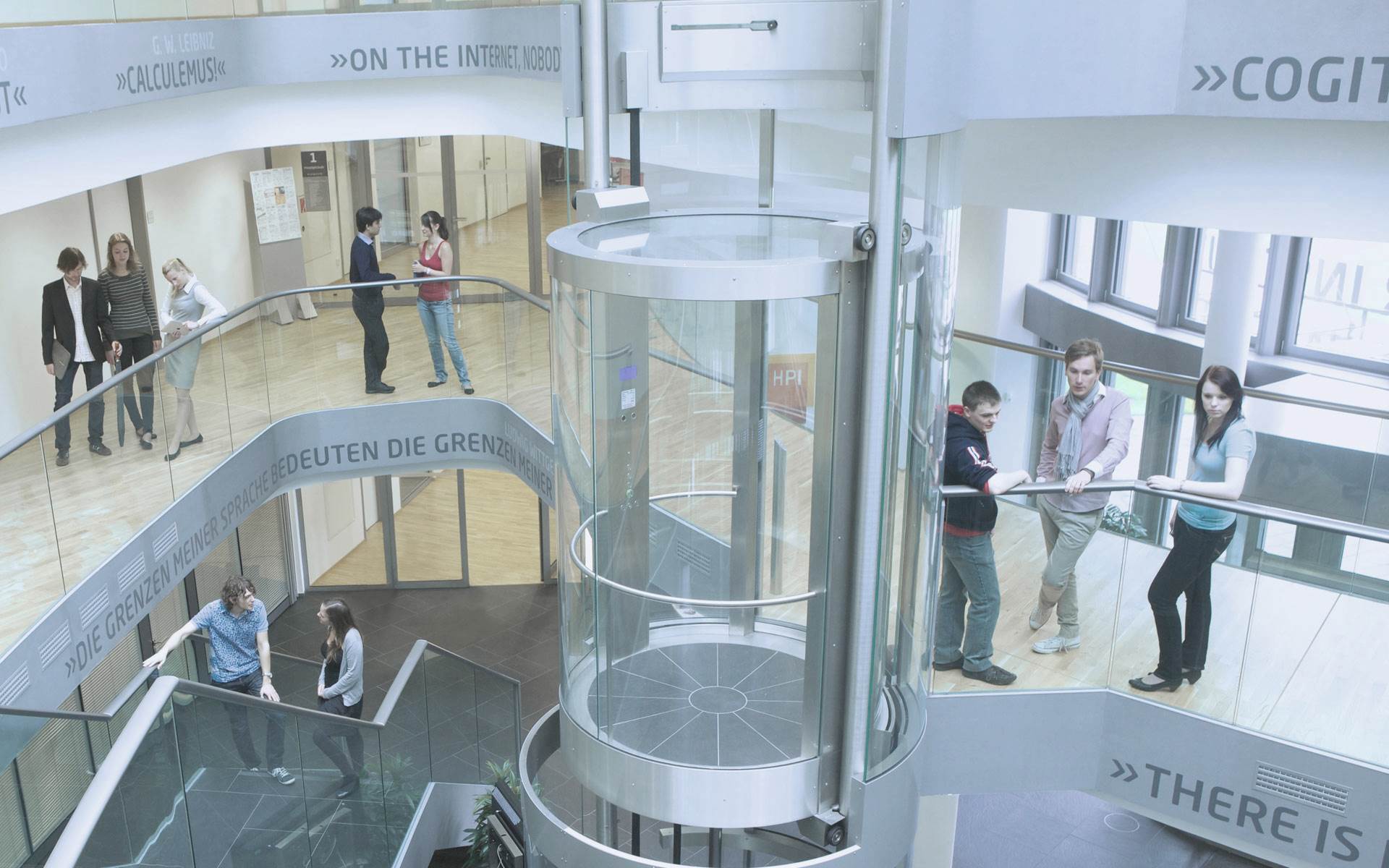The department 'Computer Graphical Systems' at HPI is dedicated to research and development in Digital Engineering and IT-Systems Engineering, focusing on information visualization, visual analytics, visual computing. Our research topics include:
- Software Process Mining and AI-Driven Software Engineering: Automated collection, descriptive and predictive analysis, and visualization of data about software systems, their evolution and the development team based on software process mining and software visualization. The objective is to provide tools that contribute to transform software engineering into a real engineering discipline. As key technology, AI-based methods are applied to high-dimensional information spaces that reflect state and dynamics of software development projects and processes.
- Geospatial Analysis, Geovisualization & Geospatial AI: Segmentation, classification, semantic interpretation, 3D reconstruction, and real-time visualization of 3D geospatial data, in particular, 3D point clouds. The goal is to enable the creation of geospatial digital twins based on sensored or modeled spatial data. Geospatial AI as arising scientific discipline combines technologies in spatial science, artificial intelligence, data mining, data visualzation and high-performance computing to extract knowledge from spatial big data.
- Sensor Analytics and Sensor AI: Extraction, fusion, predictive analysis, and visualization of real-time sensor data, in particular, in the fields of technical plant operations and domotic systems. The goal is to provide foundations for technical digital twins of complex machinery and industrial plants.
- Visual Media: Processing, semantic interpretation, transformation as well as stylized and abstract visualization of visual media content, digital images, and videos based on AI, in particular, neural networks, deep learning, and computer graphics. The objective is to investigate innovative digital tools to create, transform, abstract, and stylize visual media contents.
- Information Visualization & Information Cartography: Methods and techniques to visualize large-scale hierarchical and non-hierarchical abstract data and geographic data by means of 3D information metaphors such as tree maps, topic maps, and information landscapes.
- Real-Time 3D Rendering and Non-Photorealistic Rendering: GPU-affine algorithms and techniques for visualizing complex 3D geometric models, web-based 3D applications, and service-oriented 3D rendering.

